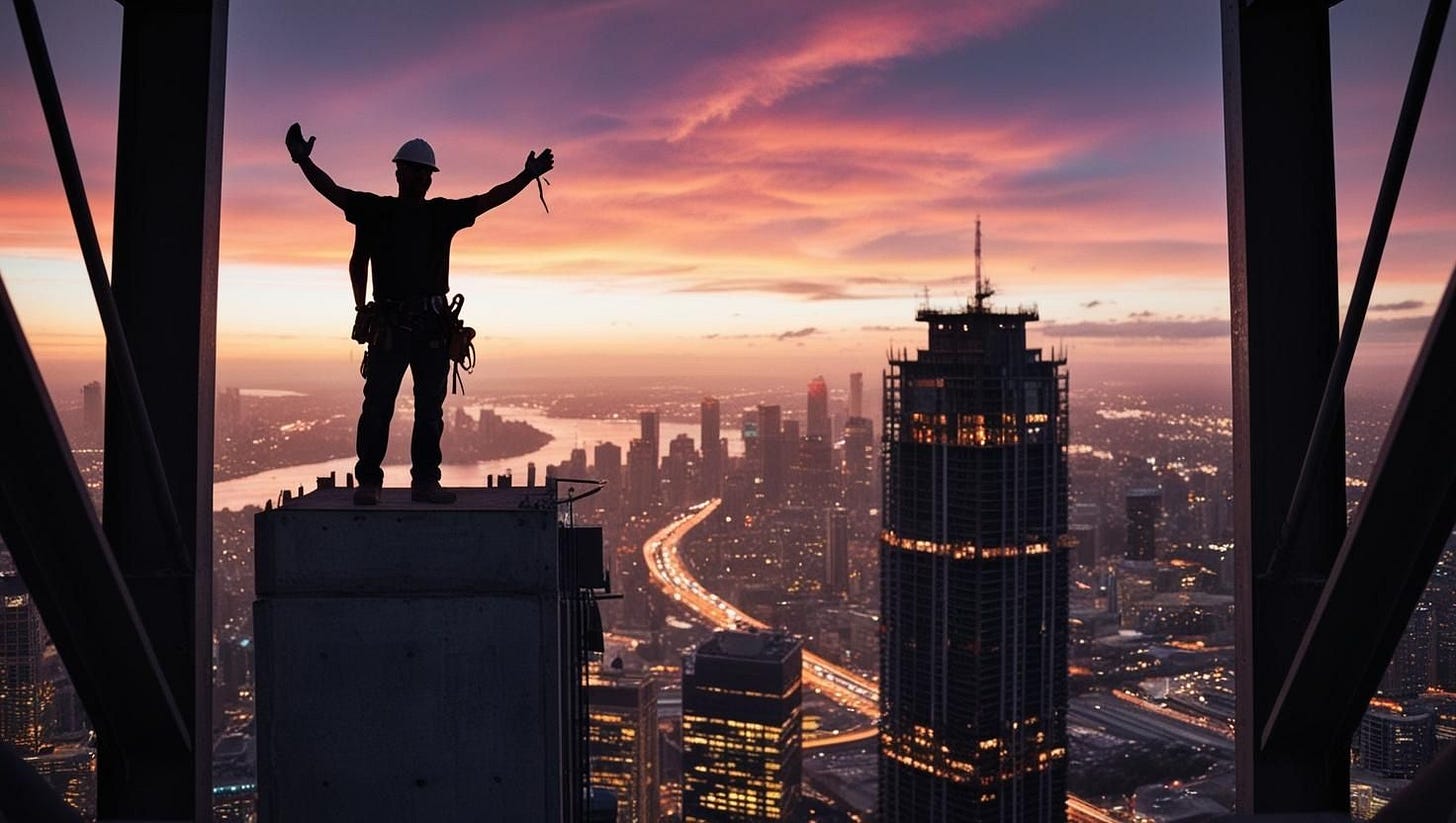A legacy of concrete and steel
Politicians come and go. Industry issues are fleeting. But what is facilitated by demolition and built by construction is permanent.
There’s a lot of talk at the moment about Rachel Reeves’ Autumn Budget and what it means for the demolition and construction industries. You can hardly go anywhere without hearing someone talk about it—how her budget will change things, what new challenges or opportunities might come our way. But here’s the truth: Rachel Reeves won’t be in that job forever. Politicians come and go, and so do their policies. Her party might even be voted out in the next election. Any choices she makes now will likely be adjusted, overturned, or forgotten in a matter of months or years.
We’re also caught up in a swirl of concerns about Grandfather Rights, CSCS Cards, and NVQs. These things dominate industry discussion and discourse at the moment. People argue, meetings are held, and decisions are pushed from one committee to the next. But here’s the kicker: all of that will resolve itself eventually, one way or another. Just like every other regulation or standard that’s ever come and gone, these too will settle, adapt, or change.
Think about that petty argument you had with your site supervisor yesterday—the one that got you so worked up you could barely focus for the rest of the day. The reality is, that argument is already over, and you’ll likely move on to another site soon. Who knows, you may never even work with that person again. And the machine you’re driving, the one that seems to have a grudge against you with its endless oil leaks and busted seals—that will be repaired or replaced soon enough. It’s just a machine, after all. Even if it’s part of your day-to-day life now, it won’t be around forever.
Now, let’s take a step back and look at the bigger picture. Let’s talk about what you do that’s actually permanent.
You see, if you work in demolition or construction, your efforts reach far beyond the daily grind and the endless paperwork. You’re building something that lasts. When you’re out there clearing a site, laying a foundation, or wiring up a building, you’re doing more than just a job. You’re part of something bigger.
If you’ve helped to build a house, you’ve done more than just assemble bricks and beams. You’ve helped create a place where families will live. A place where people will laugh, love, celebrate, and sometimes even mourn. You’ve given generations of people a shelter, a home—a place to build memories. Long after the politicians have moved on, and long after today’s debates about regulations and standards have faded, that house will still be standing. It will be a refuge for people who may never know your name, but they’ll feel your impact every time they walk through their front door.
If you’ve worked on a hospital, you’ve played a part in something extraordinary. Hospitals are places of healing, where lives are saved, where people receive care when they need it most. Think about it—hundreds of thousands of patients will be treated, comforted, and sometimes even cured within those walls. And you made that possible. You might have just installed a door frame, laid the flooring, or cleared the site for it, but you’re a part of that hospital. Your work will touch or possibly save the lives of people you’ll never meet, in ways you might never fully understand.
Maybe you’ve worked on a road or a bridge. Day in and day out, people will cross that bridge or drive down that road to get to work, to visit loved ones, to explore new places. Goods will be transported across that infrastructure. Families, friends, and strangers will pass each other on that road, each heading somewhere meaningful. And it’s because of your hard work that they’ll get where they need to go. The hours you put in will keep people connected and keep the economy moving. That’s a legacy that goes beyond any paycheque.
So, the next time you find yourself caught up in frustration over Rachel Reeves, or the Construction Leadership Council, or the board of CSCS, take a moment to put things in perspective. These issues matter, yes. Of course they do. They affect our daily lives, our work, our routines. But they’re also temporary. Whatever they create or change now, it’ll be consigned to history sooner or later. Policies will shift, new faces will take over, and the debates will move on.
But what you create—that’s different. What you build will endure. Those houses, hospitals, schools, roads, and bridges—they’re not just constructions. They’re legacies. They’ll stand as a testament to the work of you and your colleagues, your construction brothers and sisters, for years to come. These structures don’t just benefit us now; they’ll support communities for a century or more.
While politicians and policies fade away, your work doesn’t. So when you feel weighed down by all the minor inconveniences and temporary frustrations of the day-to-day, remember this: what you’re building, that’s here to stay. Generations will live in it, be healed in it, travel across it. That’s something truly worth being proud of.





